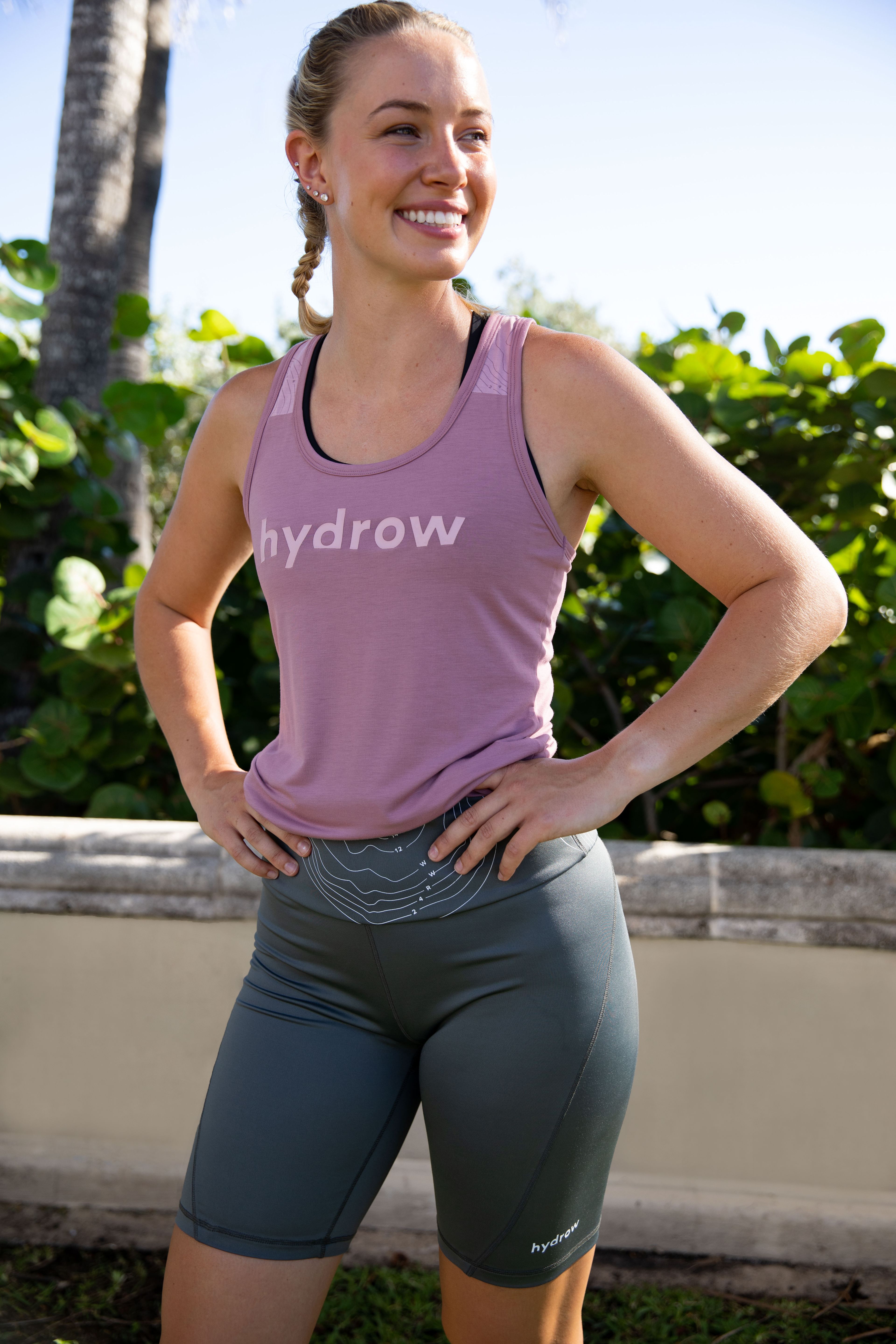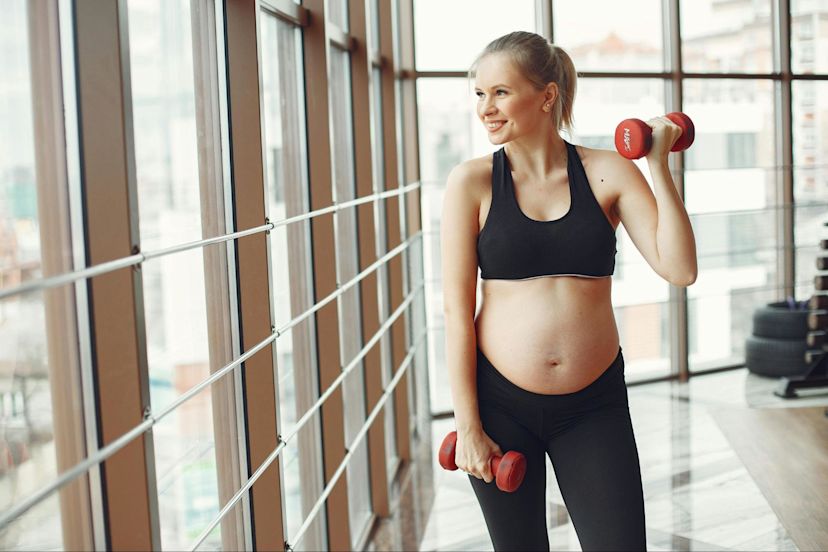The 15 Best Strength Training Exercises for Golfers
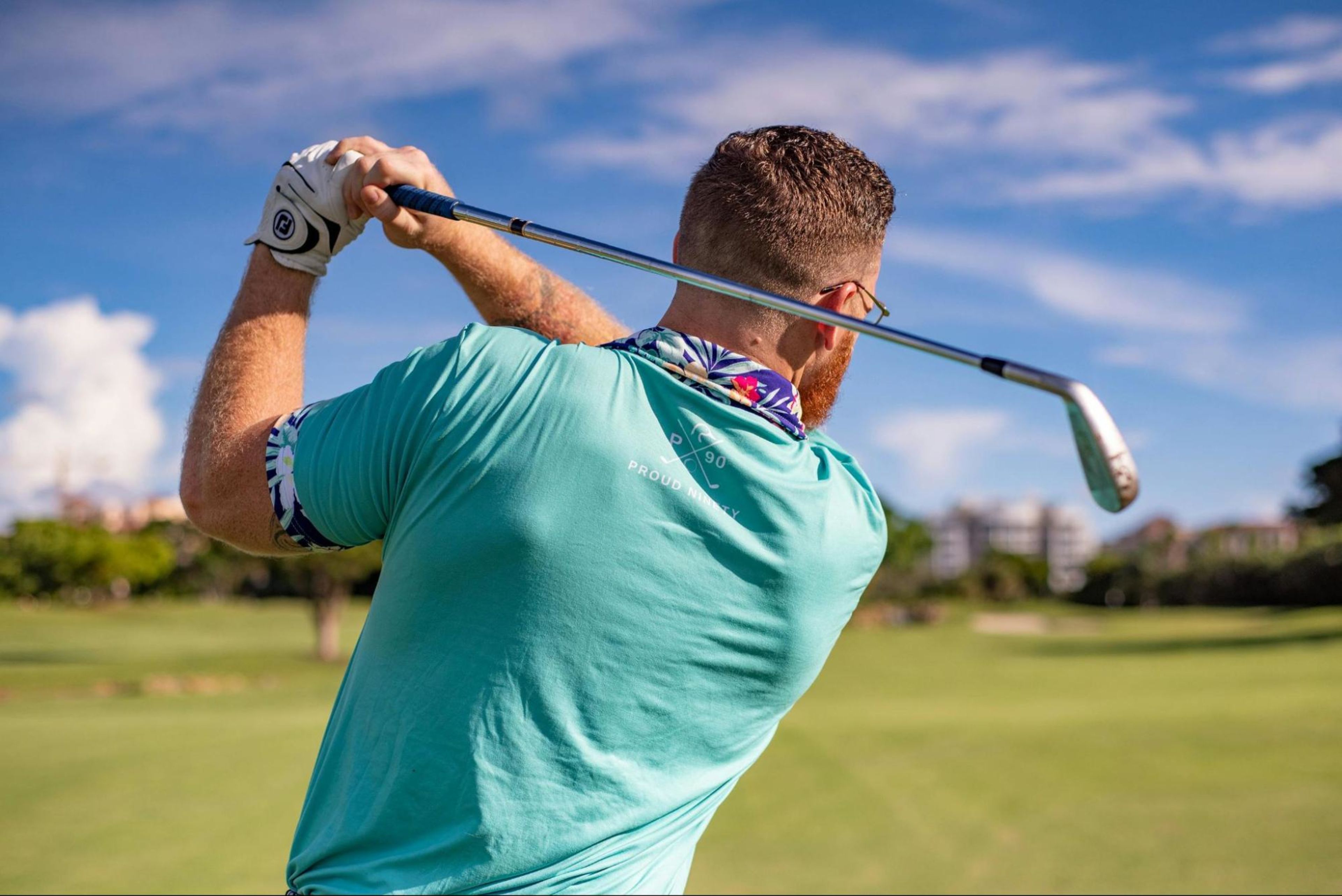
Strength training isn’t just for powerlifters or bodybuilders—it’s an essential tool for anyone looking to level up, especially golfers. Whether you’re swinging a driver or waking 18 holes, golf puts a significant demand on your body. To improve your endurance, prevent injuries, and hit longer, more consistent shots, strength training should be part of your regular routine.
In this blog, we’ll explore the benefits of strength training for golfers, walk through 15 of the best strength exercises tailored to the game, and offer tips on how to integrate these workouts into your current fitness routine.
The benefits of strength training for golfers
Strength training offers a variety of advantages to golfers at every level, including:
Increased swing power: Having a strong core, glutes, and shoulders generates more force through your swing, leading to greater clubhead speed. Faster speeds generally translate to greater distance.
Injury prevention: Golfers often deal with back, shoulder, and wrist injuries. Strengthening stabilizing muscles can help prevent these common issues.
Better posture and stability: Strength work improves your stance and rotational stability, keeping you more consistent round after round.
Endurance: Strength training can help you walk 18 holes without fatigue and maintain focus through your final putt.
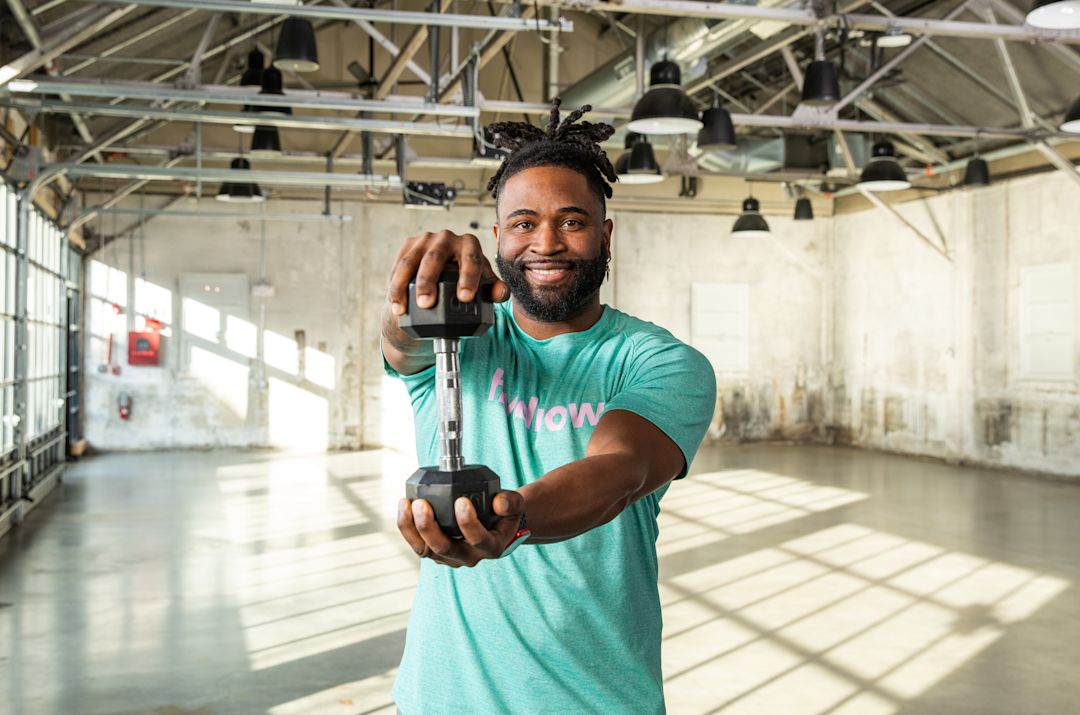
Explore Hydrow's library of strength training workouts.
The 15 best strength training exercises for golfers
These 15 strength training exercises target mobility, rotational strength, stability, and total-body power—crucial elements of a golf swing:
1. Deadlifts
Why it helps: This exercise builds posterior chain strength—including your glutes, hamstrings, and lower back—for powerful swings and injury prevention.
How to do it:
Stand with feet hip-width apart.
Grip barbell or dumbbells.
Hinge at the hips, and lift with a flat back.
Lower with control.
2. Goblet squats
Why it helps: Goblet squats build lower-body strength and reinforce posture.
How to do it:
Hold a dumbbell at chest level.
Squat down, keeping your chest tall, and drive through heels to return to standing.
3. Cable rotations
Why it helps: Cable rotations mimic the golf swing and help you develop rotational strength.
How to do it:
Stand side-on to a cable machine.
Pull the handle across your body using your core and hips.
Return with control.
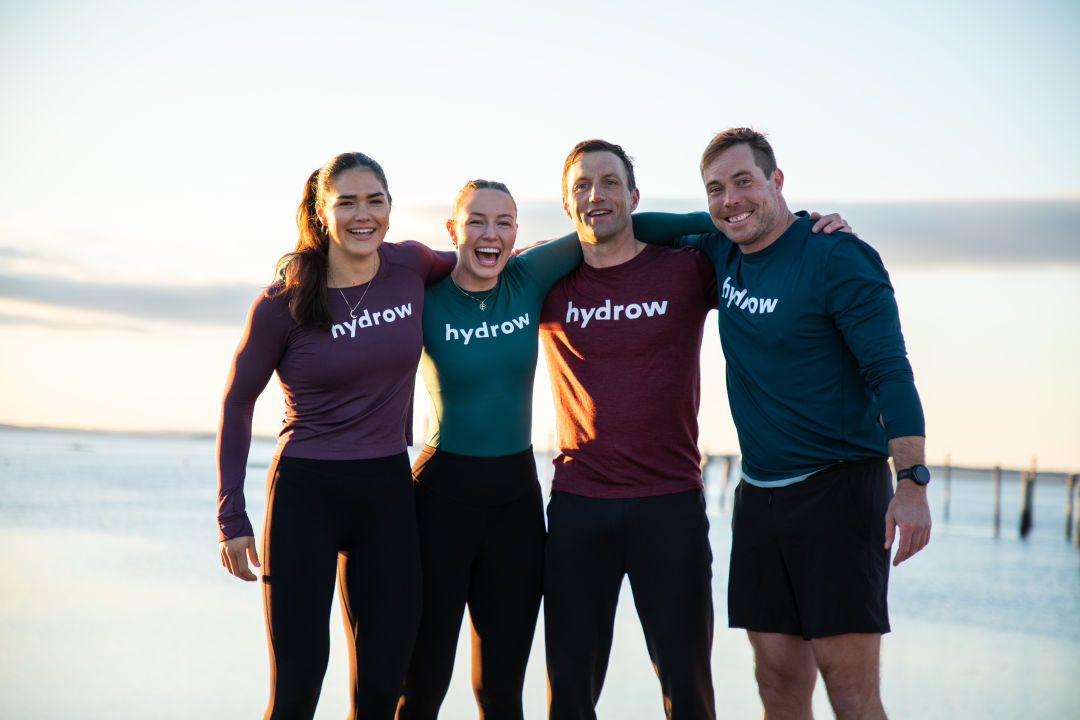
Explore Hydrow’s library of 5,000+ rowing, circuit training, yoga, Pilates, and mobility workouts.
4. Bulgarian split squats
Why it helps: These exercises improve balance, hip mobility, and unilateral strength.
How to do it:
Place one foot behind on a bench.
Lower into a lunge.
Push through the front foot to stand.
5. TRX rows
Why it helps: TRX rows strengthen the upper back and improve posture.
How to do it:
Hang from TRX straps.
Keep your core tight.
Pull your chest toward your hands.
6. Pallof press
Why it helps: This exercise builds anti-rotational core strength for swing stability.
How to do it:
Use a cable or resistance band.
Stand perpendicular, press the handle straight out, and resist rotation.
7. Single-leg deadlifts
Why it helps: Single-leg deadlifts improve balance and hip stability, which are key for staying grounded in your swing.
How to do it:
Hinge at hips on one leg.
Reach dumbbells toward the floor.
Return to standing.
8. Kettlebell swings
Why it helps: Kettlebell swings train explosive hip power and cardio endurance.
How to do it: Hinge and swing a kettlebell with control using your hips—not your arms.
Related blog: Is Rowing Good for Golf?
9. Plank with shoulder taps
Why it helps: This exercise enhances core control and shoulder stability.
How to do it: In a plank, alternate tapping each shoulder without rocking your hips.
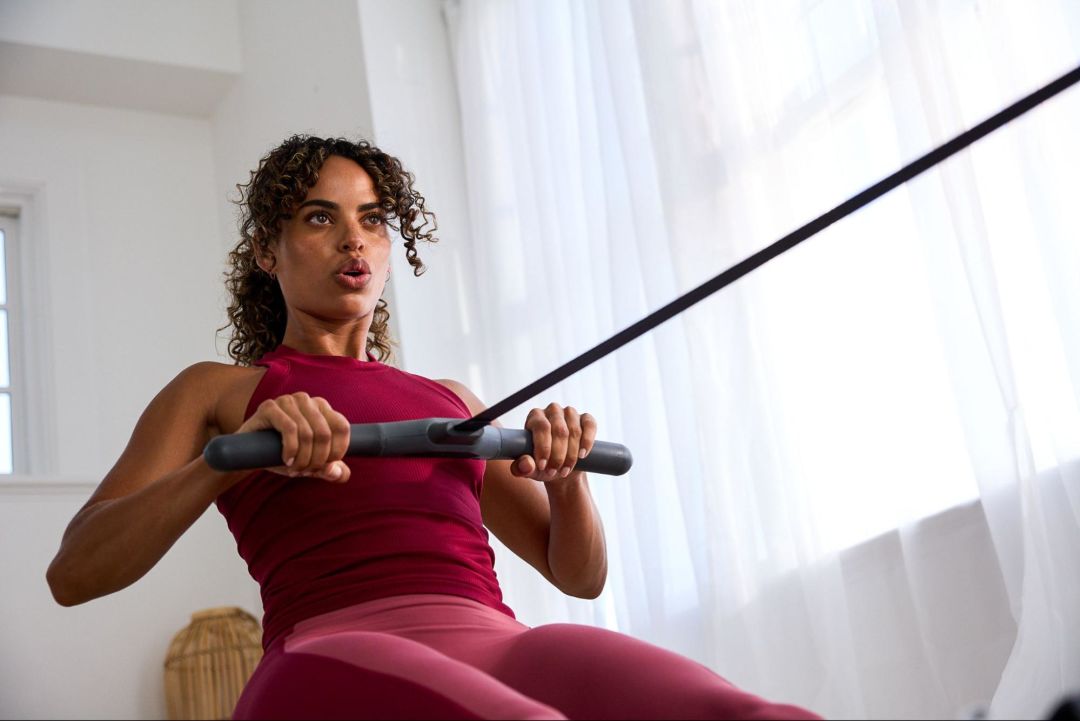
Efficiency for the win.
Work 86% of your muscles in just 20 minutes of rowing with Hydrow.
10. Dumbbell bench press
Why it helps: The dumbbell bench press builds shoulder and chest strength for stability and club control.
How to do it:
Lie on a bench.
Press dumbbells overhead.
Lower slowly.
11. Lateral lunges
Why it helps: Lateral lunges develop side-to-side mobility and leg strength.
How to do it:
Step to the side.
Sink into a lunge.
Push back to center.
12. Medicine ball rotational slams
Why it helps: Medicine ball rotational slams train explosive rotation similar to a golf swing.
How to do it: Rotate and slam a medicine ball down to one side, reset, and repeat.
13. Bird-dogs
Why it helps: This exercise builds coordination and core stability.
How to do it: On all fours, extend opposite arm and leg, pause, return, and switch.
14. Step-ups
Why it helps: Step-ups reinforce single-leg strength and balance.
How to do it:
Step onto a box or bench.
Drive through the heel.
Step down with control.
15. Renegade rows
Why it helps: Renegade rows target your core, shoulders, and back all in one move.
How to do it: In a plank with dumbbells, row one arm at a time while stabilizing with the core.
How to incorporate strength training into your golf routine
Adding strength training to your golf routine can improve your swing power, reduce injury risk, and help you feel more confident on the course. But it’s important to strike the right balance so you’re building strength without compromising your performance. A thoughtful training plan that includes full-body workouts, recovery days, and mobility work can go a long way in supporting your game—both in the short term and over time.
Use these tips to successfully incorporate strength training into your golf routine:
Train 2–3 times per week: Focus on total-body workouts that hit key movement patterns.
Timing matters: Avoid heavy lifting the day before a round—your muscles need recovery to perform.
Progress gradually: Start with bodyweight exercises or light dumbbells and build up over time.
Prioritize mobility: Warm up thoroughly and incorporate mobility work to support healthy joints.
Strength training for golfers: A sample weekly split
A well-rounded weekly routine gives you the benefits of strength training without overtaxing your body. Here's a sample split to help you get started:
Monday: Strength training (lower-body focus)
Wednesday: Strength training (upper body + core)
Friday: Strength and mobility (full-body circuit)
Weekend: Practice or play
Common strength training mistakes golfers should avoid
Even with the best intentions, it’s easy to fall into a few common traps when strength training for golf. Keep your training smart and purposeful by steering clear of the most frequent mistakes:
Skipping mobility: A tight body won’t move well. Stretch and foam roll regularly.
Too much volume: Golfers don’t need marathon workouts. Keep your sessions efficient.
Lifting too heavy too soon: Form first, weight second. Don’t sacrifice technique for more plates.
Ignoring recovery: Sleep, hydration, and active rest are just as important as the workout itself.
Elevate your golf game with Hydrow’s strength training workouts
Adding strength training to your fitness routine is one of the smartest ways to level up your golf game. You’ll hit the ball farther, feel stronger waking the course, and reduce your risk of injury.
Looking for a way to incorporate more strength training into your exercise routine? Hydrow offers guided strength training workouts for every fitness level, all led by world-class Athletes who coach you through each movement and help you stay consistent. Additionally, our rowing workouts target 86% of your muscles with every stroke, delivering full-body training and real results.
Explore Hydrow’s strength workouts and see how far you can go.
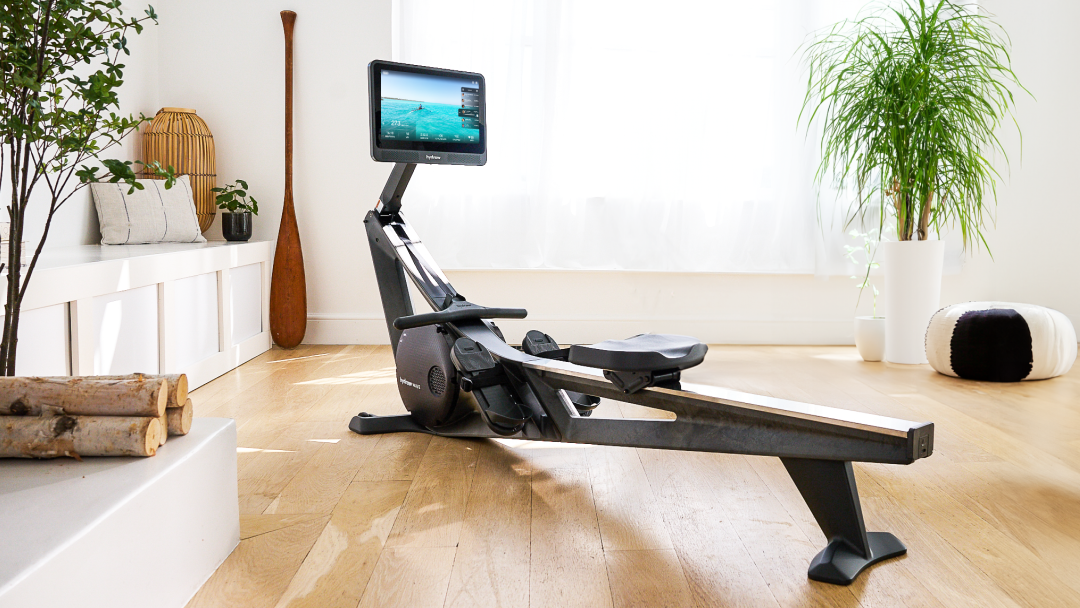
Real strength keeps moving
Learn how working out with Hydrow can help support a fuller, more active life.
